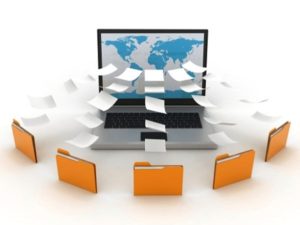
Ask the right questions
Before hovering over the next few sentences for an answer, it is important to have in mind a set of questions that should guide the choice of database for your small business. What is your objective? For who is the database designed? What do you need from them? Truth be told, it is difficult to find a content relationship management tool that can easily handle all of the following tasks:
- Event scheduling – this provides you with a manageable calendar for reminding you and your team of future events. It becomes better if it can offer automatic invitations and RSVPs.
- To-do list – you need a convenient place to keep track of your tasks, not your email inbox. The system should also be able to create an unscheduled task and move it to your calendar by simply adding a date.
- Messaging – for most businesses, messaging is more than just email. You need to keep in touch through texts, social messaging, IM, and tweets. Finding a system that factors in multiple messaging channels is better. Most importantly, it must be able to take care of contact preference. For instance, a client in Asia might prefer instant messaging to email.
- Other centres of focus should include segments and patterns of managing your contacts. To achieve stronger contact relationships through the database, you need to understand the complexities involved. For a database that can easily be segmented, you will have an easier time.
Dissolve the confusion
Most small business owners find it difficult to get the right database for their tasks because of common confusions. There is a distinct difference between a CRM and an email marketing platform. Well, both can be used in sending email messages but that is where it ends. There are many differencesbetween the two and you need to know them in order to know what to expect.
While an email marketing platform can be used to send personalised messages to different recipients, CRM messages are addressed to single contacts. An Auto Responder functionality in email marketing that can address several personalised messages to a given contact. Most small business databases do not provide that automation. Instead, they are manual.
Integrate both worlds
Having a single database that addresses all the communication and storage needs of a small business is so great. Sadly, finding such a system isn’t the easiest of things. The wisest person is one who finds a balance of both worlds. To successfully operate an online communication and storage platform for your business, you need to;
Outline your needs – it is important to be precise on what you would want the software to accomplish. Your needs must be definite. Otherwise, you will be using multiple databases for multiple tasks, none of which guarantee efficiency. Does your business entail emailingthe same message to different people? By defining your needs, you will have an easier time acquiring and operating your database.
Focus on necessity – for efficiency, you only need to acquire systems that address the most pressing needs. Find a perfect match for your needs. For instance, Zoho CRM based Auto Responders have turned out perfect with most white paper programs.
Think easy monitoring – the joy of using databases for small business is being able to capture changes and monitor connections with lots of ease. Your choice of database should guarantee efficiency in the daily operations by providing an easy monitoring system.
Easy integration – as seen earlier, finding a single system that addresses all the rising needs of a small business is not the easiest of tasks. With that in mind, it is necessary to acquire databases that can easily synchronize to provide cohesive management. They should be able to share information without the need to copy and paste. Take, for instance, the ability to share Nimble contacts with MailChimp. This allows easier establishment of relationships. For a business aimed at delivering marketing campaigns, you will be able to achieve that the easier way.
Prioritise real-time interaction – a database that guarantees real-time interaction with contacts is more preferable. It gives you the competitive advantage of faster response to the needs of your clients. From the multiple databases, you should choose one that offers easier communication in real time. In addition to this, the choice of database for your small business should be able to observe device independence and collaboration.
Seek professional intervention
In case you find it difficult to reach a conclusion, it is important to seek professional assistance. Do not buy the myth that only multibillion-dollar companies can benefit from professional remote DBA consulting services. Find out from experienced experts the best combination of technology that will deliver the desired results for your business. You must be able to share your business needs with the professional, only focusing on what matters.
Conclusion
Every business wants to move forward. At the centre of this prosperity lies efficient use of technology. For smaller businesses, an efficient, well maintained database might be everything you need to push your business forward. While there might not be a single database that meets all the needs of a business, it is possible to acquire a perfect combination of systems that will guarantee efficiency. For this to be possible, you need to outline your business needs and only focus on what matters.
Author Bio
Sujain Thomas is a California-based database administrator. She has offered remote DBA consulting services for more than fifteen years. You can visit her website or simply contact him if you have any inquiries.

